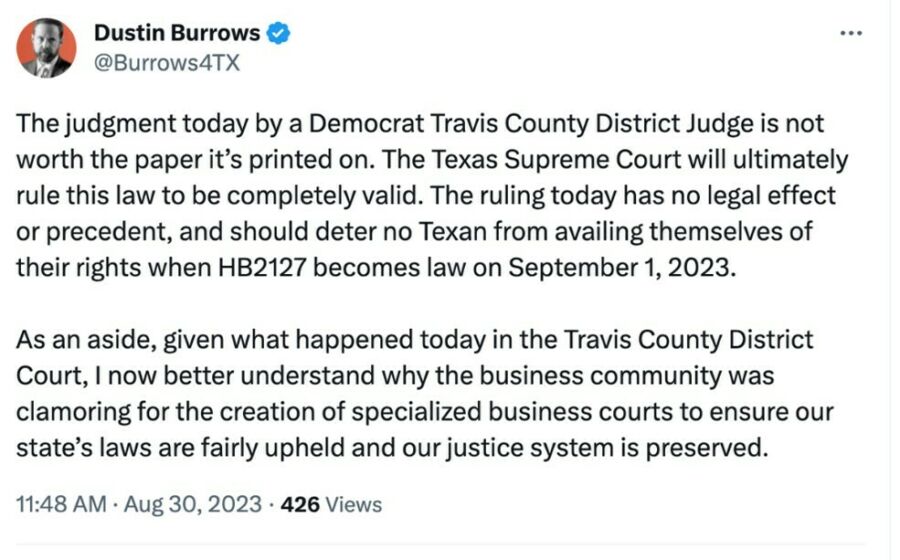Earlier today, a Travis County district court judge found in favor of several left-leaning cities and deemed unconstitutional House Bill 2127, an ambitious new law aimed at stopping the progressive agenda using a concept known as “field preemption.” While the court’s rationale was not entirely clear, the judge was seemingly persuaded by the city of Houston’s core argument that: “Constitutional local control gives Texas cities the power of self-government, permitting them to tailor their laws specifically to address local residents’ and businesses’ needs and desires.” And like any good lie, there is an element of truth to Houston’s clam.
The city is, in fact, correct that the Texas Constitution provides home-rule municipalities with permissive policymaking authority and the power of self-government—but only to a point. Limitations exist on what chartered cities may and may not do. In other words, they are not autonomous entities, even if progressives wish they were. The powers granted to chartered cities are hemmed in by Article XI, Sec. 5, which states:
The adoption or amendment of charters is subject to such limitations as may be prescribed by the Legislature, and no charter or any ordinance passed under said charter shall contain any provision inconsistent with the Constitution of the State, or of the general laws enacted by the Legislature of this State.
Thus, chartered cities may concoct rules, regulations, and ordinances, but those policies may not conflict with what the Legislature has done or with what the Constitution says. Said differently, cities have broad authority but not complete control. And that makes sense. Ours is a system of checks and balances. How a city might address its parochial concerns can lead to unintended, long-term negative consequences that the state will ultimately have to address. State policymakers then have a responsibility, if not an obligation, to serve a supervisory role.
Unfortunately, that point seems to have been lost on the lower court. Even still, many, including myself, are optimistic that the Texas Supreme Court will ultimately be persuaded to allow HB 2127 to become law. One person who expressed such optimism was state Rep. Dustin Burrows, the chief architect of the bill in the House. Alongside some other colorful commentary, he wrote on X that: “The Texas Supreme Court will ultimately rule this law to be completely valid.”

Let’s hope that Burrows is proven correct (and I believe he will be). The high court may soon have an opportunity to preserve the constitutional order and protect the legislature’s role to serve as a check on local excesses. It is crucial that these principles be upheld in the most well-reasoned way possible.
Needless to say, we have to get this one right.